Reports
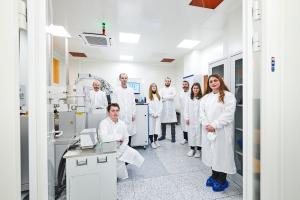
The Faculty of Electrical Engineering of the Czech Technical University in Prague (FEE CTU) becomes one of the main academic partners of the newly established Czech Semiconductor Centre (CSC), which on Monday 7 April 2025 inaugurated its activities in Brno in the presence of the Prime Minister of the Czech Republic and other representatives of the political and academic sphere. The Centre has the ambition to become a backbone institution for the development of the semiconductor ecosystem in the Czech Republic and to link academic research with industrial practice. At the same time, it will become part of a European network of centres that aim to strengthen Europe's technological self-sufficiency.
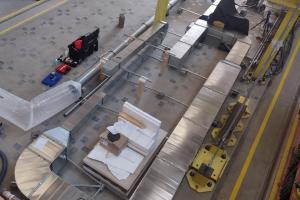
The Indoor Environment of Buildings research team working at the University Centre for Energy Efficient Buildings (UCEEB) of CTU in cooperation with Alkion service s.r.o. experimentally verified the innovative AEROSEAL technology. The test proved the high efficiency of the technology, as it significantly reduces the leakage of pipes. This translates into significant energy savings and improved indoor environmental quality. The new technology is now entering the Czech and European market.

Scientists from CTU are among thousands of researchers from around the world who have won the Breakthrough Prize in Fundamental Physics for 2025.
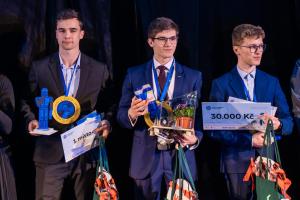
2025/04/08
For the fourth time, the Faculty of Electrical Engineering of CTU hosted the finals of the Technology Olympiad, organized by the company Technological Literacy s.r.o. Almost 1,400 students entered the school round and 72 students and female students from secondary schools and grammar schools from all over the Czech Republic, who were divided into 24 teams, made it to the one-day finals in Prague. During the day, students had to develop a project on one of ten topics that the organisers consider to be current challenges in the world of technology.
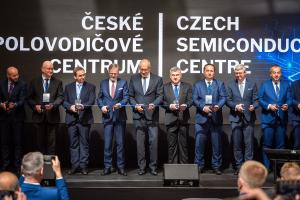
The Czech Republic has taken a strategic step to strengthen its position in the semiconductor sector. The newly established Czech Semiconductor Centre (CSC) will connect academia with industry, promote innovation and facilitate chip development for small and start-up companies. It will offer them mentoring, financial advice and access to pilot lines, thus contributing to the development of the semiconductor ecosystem in the Czech Republic. At the same time, it will become part of a European network of centres that aim to strengthen Europe's technological self-sufficiency.

The CLARA Centre, which focuses on the intersection of artificial intelligence, quantum computing and neuroscience research, has received key funding to upgrade the facilities involved. The total budget is CZK 1.057 billion, of which the European Union has already approved the provision of almost EUR 15 million (CZK 357 million) from the Horizon Europe programme last year. The Czech Ministry of Education, Youth and Sports (MEYS) has now decided on complementary funding for the second part of the budget from the Jan Amos Komenský Operational Programme (OP JAK) with eligible expenditures totalling nearly CZK 700 million (EUR 26.4 mil.), of which the subsidy is CZK 665 million (EUR 27.9 mil). The purpose of this part of the budget is mainly to modernise laboratories and build unique infrastructure at research sites in Prague, Brno and Ostrava.

The final presentations within the EuroTeQ Collider project course took place at Faculty of Electrical Engineering of Czech Technical University (CTU) in Prague. The challenges were formulated by CTU's industrial partners and the EuroTeQ alliance and focused on the broad theme of "Enhanced Connections for Sustainable Futures". This was further broken down into three key categories, People, Nature and Economy.

Scientists from CTU have found a way to improve the accuracy of distance measurements in space by up to 100 times A team from the CAPADS laboratory at Faculty of Nuclear Sciences and Physical Engineering at CTU in Prague has made a breakthrough measurement in the field of intensity optical interferometry, which is essential for accurate measurement of directions and distances in space. Improvements in accuracy could reach several orders of magnitude and contribute significantly to a deeper understanding of cosmic structures and phenomena.
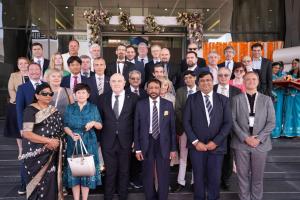
A new institute dedicated to artificial intelligence, computing, and robotics - the Marik Institute of Computing, Artificial Intelligence, Robotics, and Cybernetics (MICARC), was officially inaugurated at NIMS University in Jaipur, India on April 1, 2025. The institute is named after Professor Vladimir Marik, a leading Czech scientist and the founder of the Czech Institute of Informatics, Robotics, and Cybernetics (CIIRC) at CTU in Prague. This significant step not only strengthens scientific ties between the Czech Republic and India but also opens new opportunities for collaboration between scientific and industrial partners in the field of technology, especially in the rapidly growing area of artificial intelligence.
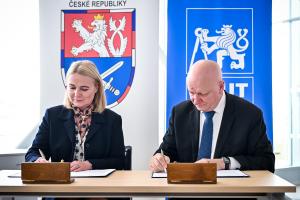
2025/04/01
Minister of Defence Jana Černochová and Czech Technical University (CTU) Rector Vojtěch Petráček, together with University of Chemistry and Technology (UCT Prague) Rector Milan Pospíšil and Brno University of Technology (VUT) Vice-Rector Martin Weiter, participated as panelists in a discussion titled „Increased Defence Spending as a Challenge for the Involvement of Scientific Research and Innovation of Czech Technical Universities in Strengthening National Defence.“ The audience, composed of CTU students and faculty, engaged in a nearly hour-long Q&A session with the speakers.